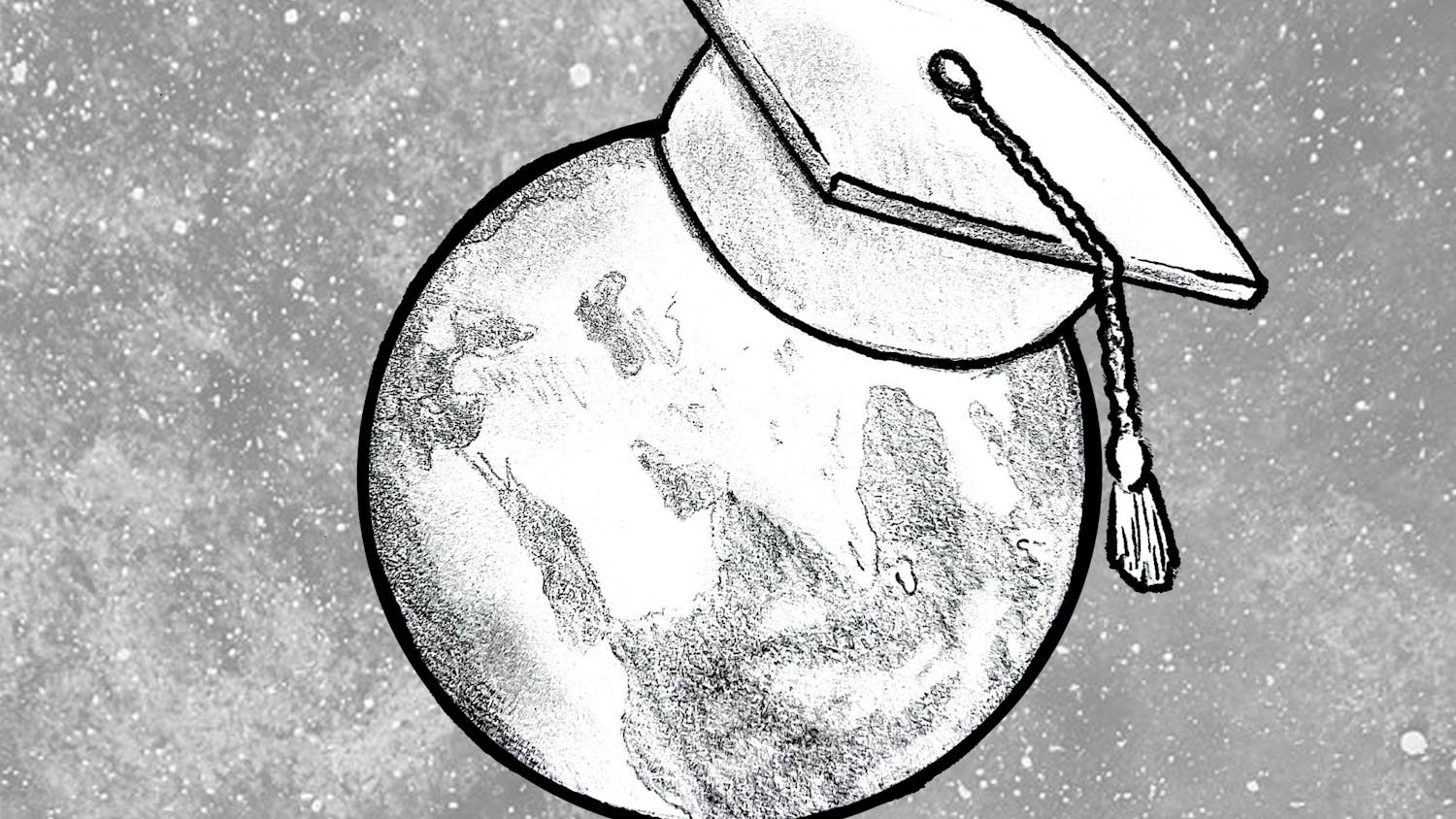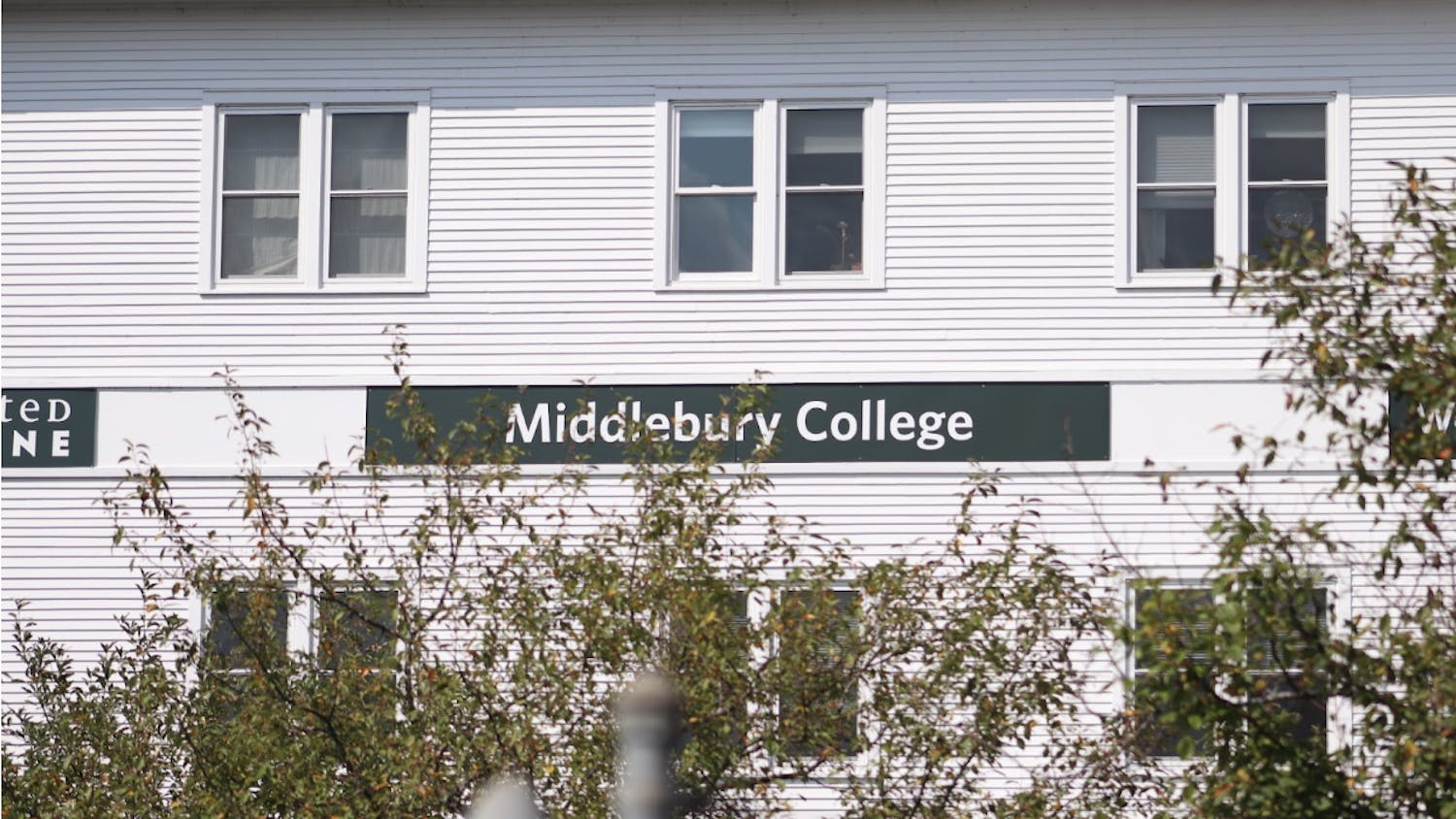The start of the semester is always an incredibly busy time in all realms of college life. In particular, I find the social scene to be especially hectic as I meet new people through classes and other activities. In this vein, the first few days of this semester were the busiest I’ve experienced so far. It felt like every time I went to the dining hall I’d spend more time running around saying hi to people than I would spend eating the meal itself.
On one of the first days of the semester, I was at my third pit stop on my journey to get a fork and bring it back to my booth when I did something bizarre. I was chatting with a friend who’d returned from abroad when a guy came up behind me to sit with the friend in question. Now, as is the case with a lot of folks, I’d seen this guy around campus regularly, but we’d never spoken, and I knew nothing about him. In the moment, I was overstimulated, and his presence was an obstacle between me and getting back to the quiet of my booth. Or, at least, that’s the only explanation I have for what followed.
Instead of introducing myself, I instead came up with an idea: what if the two of us actively chose not to know each other? To not even know each other’s names? To live in an intentional sphere of anonymity, as the rest of the world does outside of small, tight-knit communities like Middlebury? For the remainder of our mutual college experience, we could have one fewer person to interact with, one fewer potential pit stop in a dining hall.
So we shook on it and agreed that beyond the knowledge of lacking knowledge, we’d share nothing more in common.
As cliche as it is to say, hindsight truly is 2020. Though at the time, this strategy of intentional anonymity felt like a convenient solution, it actually was more of a band aid suppressing an ongoing conflict I have with myself when it comes to navigating new and developing relationships. As is the nature of bandaids, while it offered temporary relief, the only way to actually solve the problem was to deal with what was underneath. But why was this option appealing to me in the first place?
Because, to be honest, I’m exhausted. Coming from an underprivileged background is difficult wherever you are, but this exhaustion is heightened in a privileged community like Middlebury. In every new relationship that I forge, I carry a can of worms with a lid that will not go back on once it comes off, and in every relationship, it’s only a matter of time before I have to decide if that lid should come off or stay on. Of course, this isn’t a literal can of worms: the worms are the part of our histories that are personal and meaningful to us. Maybe it’s our mental health, or family background, or traumas that stick with us. Sharing these parts of ourselves means taking a developing relationship to a deeper level that requires trust and time.
Although I spent my first year trying to cultivate as many of these deep friendships as possible, by my fourth semester, I decided that my non-friend and I would be fine if we never got to know each other. Fourth-semester-me is exhausted and already socially fulfilled as it is.
I find that most people I interact with here tend to fall on either side of a fence. On one side are the people that never see the worms, folks who for one reason or another I don’t feel like sharing those parts of me with and as such are perpetually kept at a distance because there’s only so close you can be with someone who doesn’t know much about what has made you who you are. On the other side of the fence are the people who have seen the worms, whether it be a few of them or the whole can, and have chosen to stay in my life anyway. Through the empathy of others, I have gained the confidence to expect that if I lower my walls to reveal my natural complexity, people will respond in kind.
In some ways, we all soften the edges of our personal realities to fit certain molds. This censoring is ultimately easier for others to understand and relate to, and also for ourselves to contend with.
Last year, it got to a point where I became more comfortable with opening my can more often. I realized that leaning into discomfort was less exhausting than constantly avoiding sharing the truth. In sharing these worms with my friends, we’ve become closer. The walls I put up have started to come down, and things feel easier. I feel more at ease and able to be myself.
Going forward, when meeting new people, I want to empower myself to take that first step out of my comfort zone. Figuring out how far to step outside of that comfort zone is no easy task. There have been many instances where I’ve overshared to the point of discomfort. There have also been times when I’ve felt like a puzzle piece that simply will not fit no matter how hard I try. But when I can reach that balance, beautiful things happen. Empathy blooms, and those meaningful deep connections we hope to get out of our college days come to life.
Oh, and that strategy of intentional anonymity? It failed spectacularly. This campus is too small for those kinds of things to work: the poor bloke is in my Creative Writing class. And for what it’s worth, I’m glad it didn’t work out. I’ve learned that there’s value in so many of the connections I’ve made here at Middlebury — whether or not that can of worms is opened. If I could go back to that moment, I’d tell myself that instead of running away from the possibility of a new connection, I should lean into it. Take a risk, because so many of those steps I’ve taken out of my comfort zone have been for the better. Up until recently, in those moments when I was feeling things that were too heavy or my anxiety was spiking, I’d always struggle to think of a friend I felt comfortable reaching out to for support. The fear of burdening someone else was just too much. But by being more open and frank about my experiences and creating a sense of shared understanding and empathy with the people around me, I’ve finally found that I can reach out to people in those hard moments.
Our worms — our baggage — can be heavy. In sharing it with others, in taking that risk, we can carry it together.



